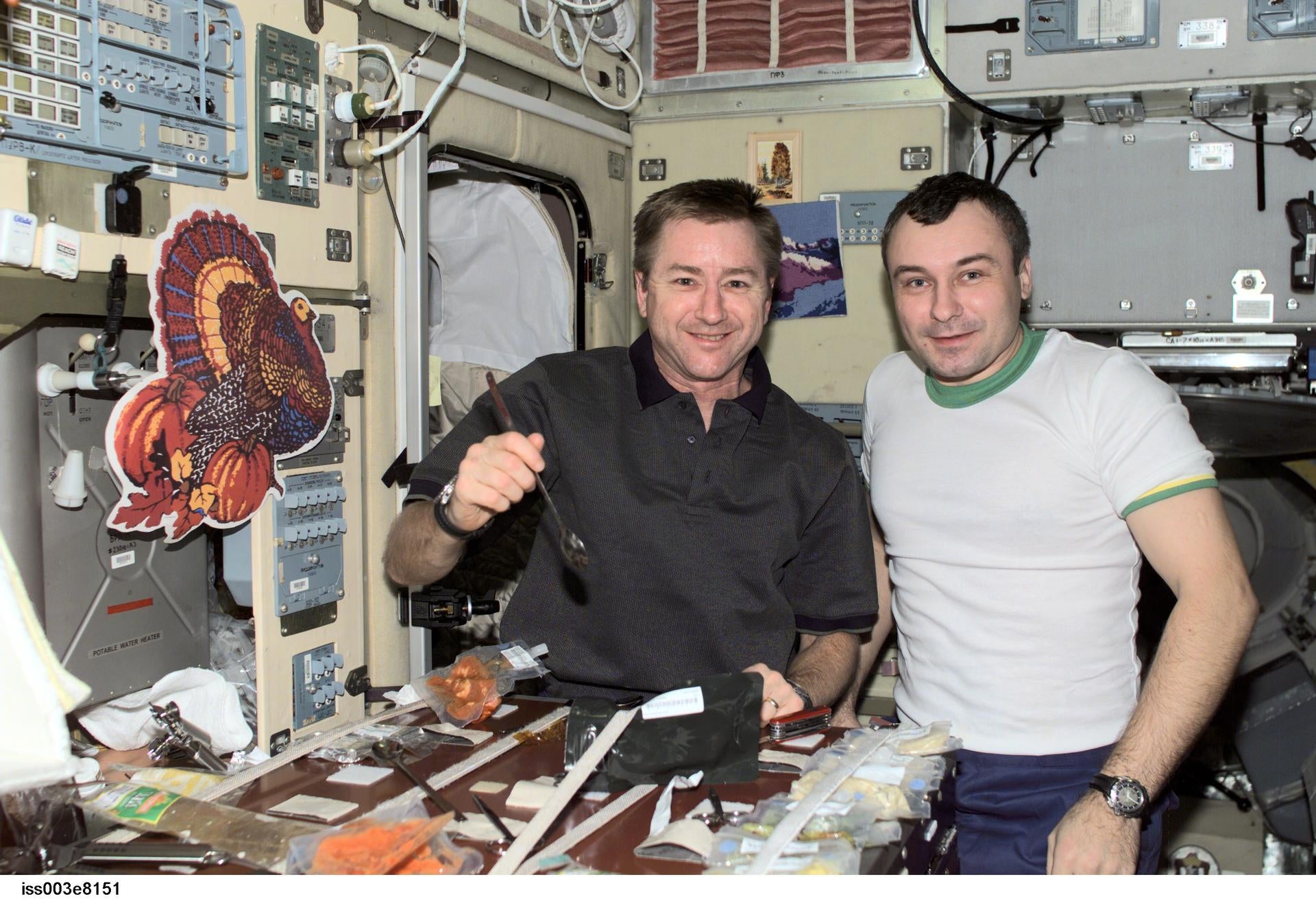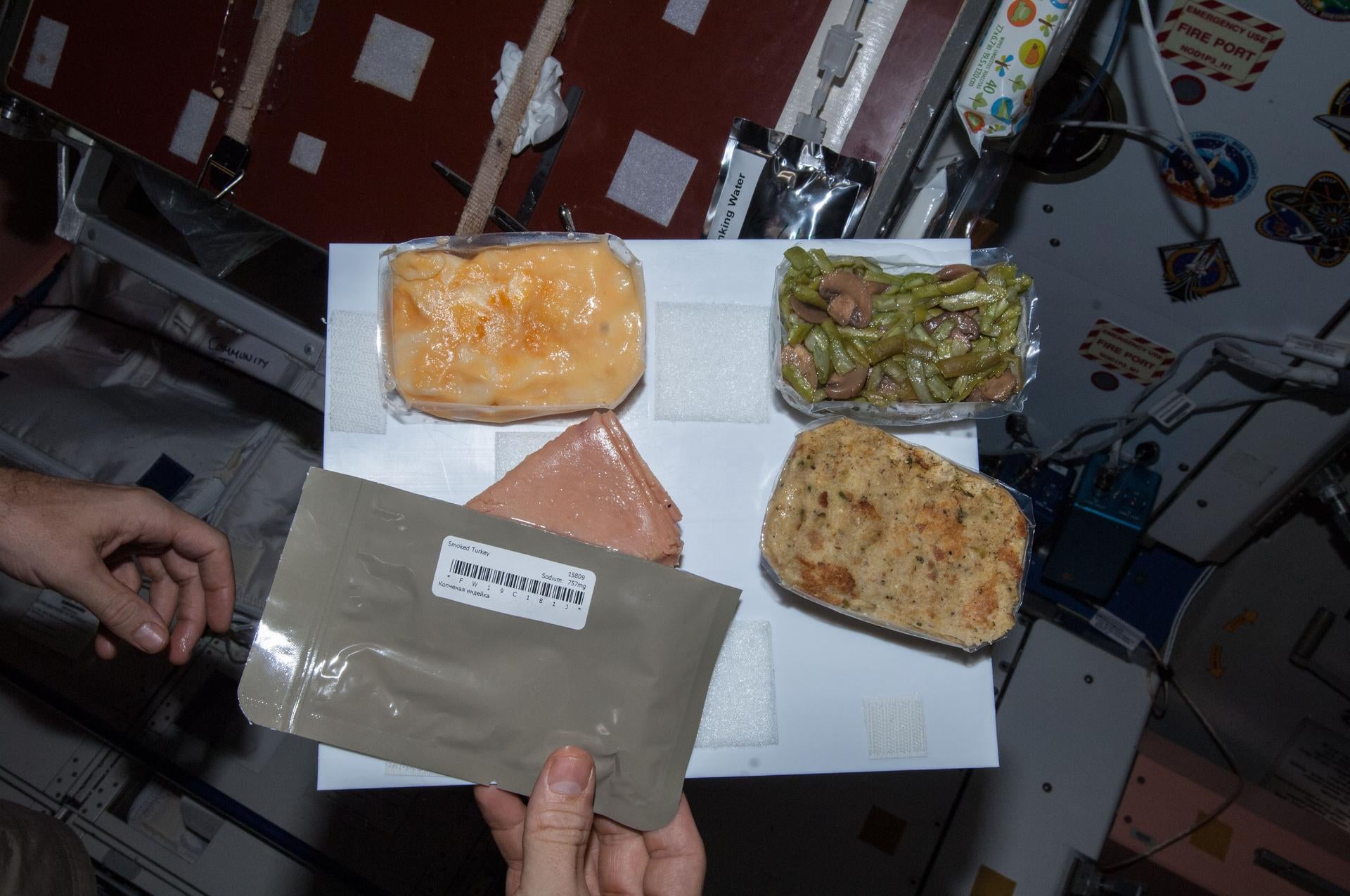Space Turkey
Dear readers,

Dear readers,
Welcome to Quartz’s newsletter on the economic possibilities of the extra-terrestrial sphere. Please forward widely, and let me know what you think. This week: being thankful—in space.
🌘 🌘 🌘
Happy Thanksgiving!
Though this annual celebration of gratitude is mainly an American tradition, Thanksgiving feels like a fitting holiday for the space community. The popular origin story of European settlers voyaging across then-vast distances to explore a new world calls to mind dreams of colonizing the solar system. Though astronauts someday arriving on Mars are unlikely to find the indigenous people who made it possible for the Pilgrims to survive, that’s probably for the best, considering how it all went in the New World.
Given the fraught history of exploration on earth, we should be glad that exploration in space has thus far tended to bridge artificial gaps between humans, rather than exacerbate them. The first orbital Thanksgiving celebration took place in 1973, and has continued on and off since then, becoming an annual tradition for the past two decades as the International Space Station provided a long-term outpost for humans in orbit. Just look, Russians and Americans breaking bread together in orbit (admittedly, in 2001):

This year, the multinational crew onboard the station will enjoy “smoked turkey, green beans, cornbread dressing, and macaroni and cheese they’ll reconstitute with water.” Ever resourceful, they are trying to jerry-rig a pumpkin-pie substitute by combining cookies with candied yams. It’s unclear whether that’s an improvement on “blueberry-cherry cobbler…served on a tortilla,” a previous Thanksgiving treat.
Oh, and look out for the Snoopy balloon in the Macy’s Thanksgiving Day parade; the cartoon beagle will sport a spacesuit in honor of the 50th anniversary of the first Apollo moon landing. There’s a long history between Charles Schulz’s cartoons and the space program—astronauts still bestow the “Silver Snoopy” award on NASA workers who have gone above and beyond to ensure safe human spaceflight.
The prevailing theme of this newsletter is that human activity in space will only become more like human activity on earth: motivated by profit, driven by myriad stakeholders, and reflective of terrestrial geopolitical conflicts. But as more countries and corporations move beyond earth’s atmosphere, let’s hope humanity will remember those early days in orbit, when re-hydrated turkey meat from a plastic packet could symbolize international solidarity.
Now, I have to go make the gravy.
🛸 🛸 🛸
Imagery Interlude
It is my firm hope that your Thanksgiving meal is more appetizing than this dinner enjoyed (?) by astronauts aboard the International Space Station in 2013.

Fortunately, it appears the current ISS crew has an actual metal can of cranberry sauce, which honestly is all you need.
🚀 🚀 🚀
SPACE DEBRIS
Europe makes its space plans. While the US is talking turkey, the European Space Agency’s member states are talking, well, turkey, i.e. its space ministers are heading to a summit in Seville to decide their strategy and budget for the next three years. The agency hopes to spend some $13.8 billion in the coming years on a portfolio of projects ranging from upgrading rockets to surveying astronauts. Of particular interest will be where and how the ESA commits to spending money on a return to the Moon.
Egypt’s first satellite. The Egyptian government flew its first satellite, called Tiba-1, on a European Ariane rocket launched in South America. How’s that for globalization? Named after Thebes, the ancient Egyptian capital, the communications spacecraft is expected to provide data and broadcast links throughout Egypt. The falling cost of space access is helping new countries take advantage of orbital infrastructure—Nepal, Rwanda, and Sudan also launched their first spacecraft in 2019.
Worthwhile Canadian Radio Appearance. I went on CBC’s national radio show The Current this week to talk commercializing the International Space Station and low-earth orbit more broadly. The response from many listeners who thought that any private activity on the station would be bad—and, inexplicably, exacerbate climate change—helped me appreciate the challenge faced by NASA as it tries to communicate its transition to public-private partnerships in space. The knee-jerk negative reaction to private corporations or individuals using public space resources, even when they’re paying for it, may be as big an obstacle as the business model. Meanwhile, the current model of space is the one that relies on for-profit corporations using public funding without effective oversight.
Heads up. China is still dropping rocket stages on its citizens because building safe launch sites is too much of a hassle.
Your pal,
Tim
This was issue 25 of our newsletter. Hope your week is out of this world! Please send Canadian space angst, favorite pie recipes, tips, and informed opinions to [email protected]. If you enjoy this newsletter, take 50% off becoming a Quartz member.